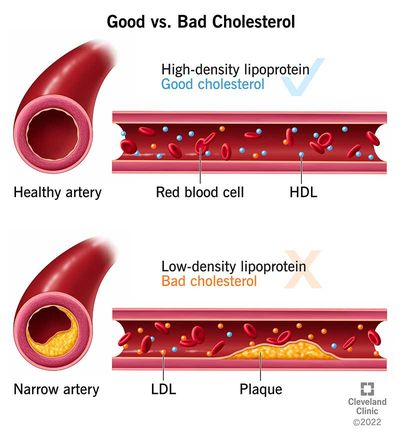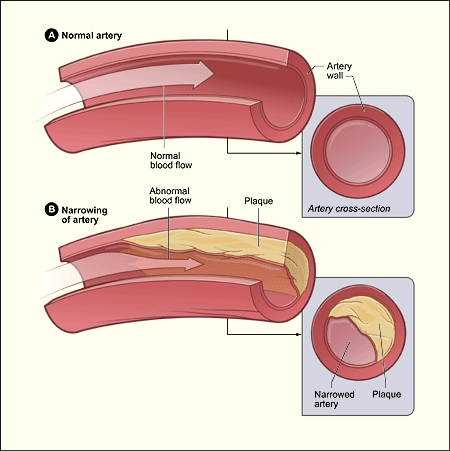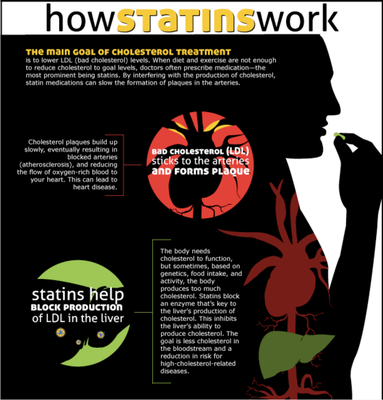Easy Steps to Lower Cholesterol
After you finish your first two months of BP checks, we'll start to tackle cholesterol! We'll dive into the impacts of high cholesterol on heart health. We'll explore together how cholesterol-lowering medicine can help reduce your risk if you choose.
Cholesterol is a waxy substance made by our body and found in many foods that we eat. It has many important roles in our body, such as building cells. The problem is when our body has too much of it. In general, high cholesterol has no symptoms, so many people do not know they have it. However, when cholesterol levels remain high, it can lead to life-threatening events such as a heart attack or stroke.

Learn More
Frequently Asked Questions
Cholesterol is a waxy substance made by our body and found in many foods that we eat. It has many important roles in our body, such as building cells. The problem with cholesterol is when our body has too much of it. When certain of our cholesterol levels are too high, it can cause "plaque" to build up in the blood vessels around our body. This limits the amount of blood that can flow through our arteries.
In general, high cholesterol has no symptoms, so many people do not know they have it. When cholesterol levels remain high, it can lead to atherosclerosis or building up of "plaque" in the blood vessels of your body. This can cause heart disease and lead to heart attacks and strokes. Plaque blocks blood from flowing through the blood vessels. When a blockage happens in the heart, it can be a heart attack. When a blockage happens in the brain, it can be a stroke. Learn more about plaque build-up from the American Heart Association.

There are three major types of cholesterol:
- LDL or "bad" cholesterol: LDL cholesterol is considered bad because it's the one that mainly builds up in the blood vessels of your body, including the heart, brain, and kidneys.
- HDL or "good" cholesterol: HDL cholesterol is considered good because it prevents or slows down the buildup of cholesterol in the blood vessels of the body, which causes heart disease.
- Triglycerides: Triglycerides are a type of fat you get from food that your body uses as energy. The problem with triglycerides is when you have too much of it. They can build up as fat in the blood vessels of the body and cause issues like heart disease, heart attacks, and strokes.
In Healthy Heart, we will give personalized healthcare advice and individualized LDL goals. In general, the goal for most patients in Healthy Heart is to have an LDL of 100mg/dL or lower.
A cholesterol-lowering medication helps to stabilize the plaque in our blood vessels. It makes it less likely for something like a blockage to happen. The Healthy Heart team will advise you on whether you would benefit from a cholesterol-lowering medication such as a statin. If you may benefit, we will work with you to select the best choice of medicine and review any potential side effects. Learn more about cholesterol-lowering medications from Million Hearts and the FDA.

Statins start having an effect within 24 hours. However, the effect on your cholesterol level will take 4-8 weeks, which is why we don't check your cholesterol right after making any lifestyle changes or starting a medication that improves your cholesterol.
All insurances will cover at least one statin. They are generally very affordable. If we prescribe a statin that is not covered or is too expensive, we'll work with you to try to find a lower cost option.
The Healthy Heart nurse practitioner can order a lipid test at your request. You can go to any Penn Medicine lab at your convenience to get the test done. The results will be saved to your medical record and available for your health care providers. After six months, we will ask you to complete a lipid screening to see how well Healthy Heart worked for you.
Maintaining a healthy diet and active lifestyle, as well as quitting smoking, can help lower cholesterol. Learn more about maintaining a heart-healthy lifestyle from the American Heart Association. If you want more information on healthy eating, including videos and recipes, visit our Healthy Eating page.

